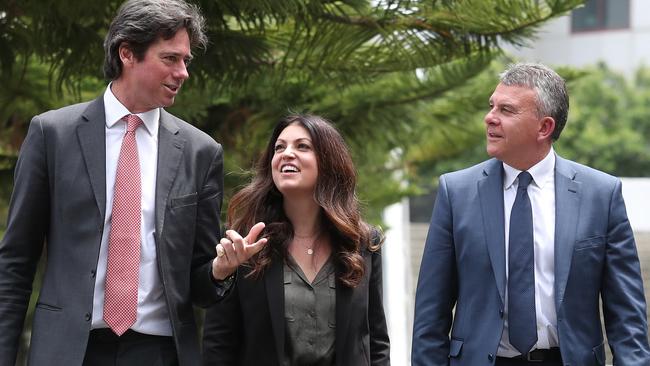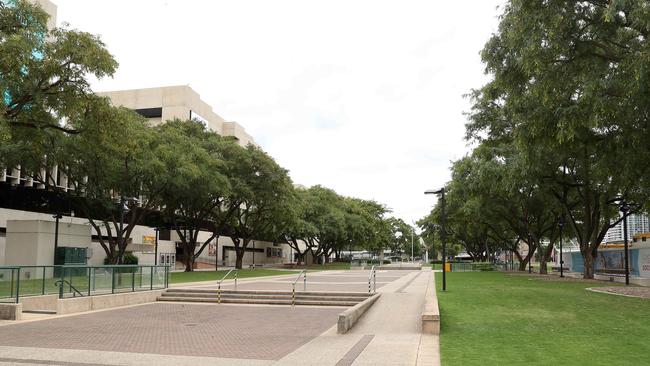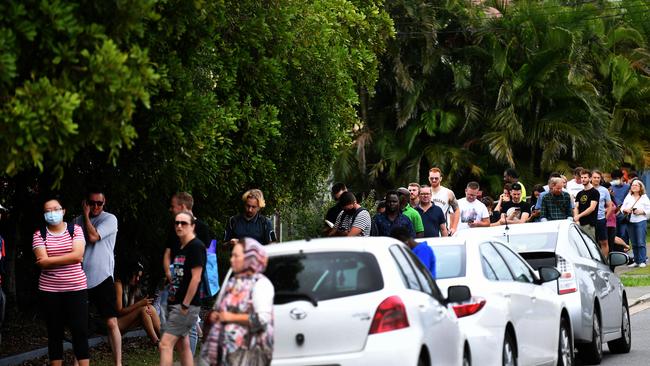See tips from experts to help you look after your mental health during the coronavirus pandemic
A Brisbane doctor has warned residents to look after their mental health during the coronavirus pandemic as Lifeline reports a 15 per cent spike in calls to its helpline. But there are ways to give yourself the best chance of keeping your mental health in check.
Southeast
Don't miss out on the headlines from Southeast. Followed categories will be added to My News.
A BRISBANE doctor has warned residents to make their mental health a priority during the current coronavirus pandemic.
With so much uncertainty in peoples lives such as job losses, shortages of essential supplies, as well as so many places being in lockdown due the outbreak of the disease, mental health services have experienced a spike in calls since the crisis.
Revealed: $3b for businesses, households
COVID-19: 15m Aussies could catch virus within months
Tokyo Olympics 2020 delay: Australian athletes won’t be required to re-qualify
Director of medical services at Belmont Private Hospital Dr Mark Spelman said COVID-19 could take an emotional toll on communities at large.
$1 for 28 days: Full digital subscription
“Fear and anxiety about a disease can be overwhelming and cause strong emotions in adults and children,” he said.
“During this time, taking care of your mental health is just as imperative as monitoring your physical health.
“People with pre-existing mental health conditions should continue with their treatment and be aware of new or worsening symptoms.
“Coping with stress effectively will make you, the people you care about, and your community stronger.”

Lifeline Australia CEO Colin Seery said they had received an unprecedented spike in calls since the start of summer, firstly from the bushfires and now from COVID-19.
“The spike is 10 to 15 per cent bigger than usual summer call rates,” he said.
“We are receiving up to 3000 calls a day, that is a call every 30 seconds, 23 per cent of those calls are related to COVID-19.
“We do not expect this spike to reduce anytime soon.”
Mr Seery said it was essential for people to contact services, including Lifeline and Beyond Blue, to help them if they were struggling with their mental health.
“We are here so that no person in Australia has to face their darkest moments alone. People should reach out to Lifeline whenever they feel they have something they need to talk about but can’t talk to anyone else,” he said.
“When you are cut off from anything you regularly do to maintain your wellbeing, it is important to look for other positive ways to connect with others.
“We want to remind everyone that Lifeline is here to offer support to you and listen. Lifeline are committed to ensuring our services continue as normal during this time.”

Mr Seery also said research during the SARS pandemic in Hong Kong in 2008 showed the significance of connection through such events.
“It found that residents in Hong Kong experienced increased social connectedness, which offset the negative mental health impacts of the pandemic,” he said.
“We encourage people to be creative with how they interact but if something is overwhelming you, whether it be about COVID-19 or something else, it is really important that you talk about it to someone you trust.
“Reach out to a friend or family member or call Lifeline.”

LIFELINE’S WAYS TO STAY CONNECTED WITH PEOPLE IF ISOLATED
– Set up a gratitude tree where every member posts a message or sends a text to other members to share something they are grateful for.
– Find a buddy, or group of, to set daily challenges with. These could include a healthy habit, a mindful practice, a creative pursuit. Be sure to encourage and check in daily to stay motivated.
– Set dates and times to watch the same television shows or movies with someone and message each other your thoughts along the way – kind of like Gogglebox but you’re not sharing the couch.
If your local community has one, join its social media group. This will keep you up to date with what’s going on directly around you. It may also include ways you can perhaps reach out and connect with someone less fortunate than you and ways to assist them.
Lifeline is operating 24 hours, seven days per week on 13 11 14 and through text message on 0477 131 114 from 6pm until midnight. Kids Helpline – for children that may need support is available on 1800 55 1800 or kidshelpline.com.au and Beyond Blue is available on 1300 224 636.


